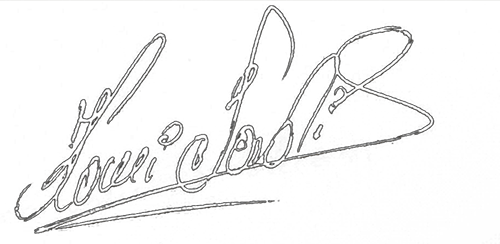Review by Senija Midzic
Poetry collection of a young poet, Fadil Komić, whose life was unfortunately ended prematurely in 1994, amidst the war, takes us into a world of a young man with an experience of an adult. Experience, acquired too early in a brutal combat between good and evil, a lost youth among the detainees, wounded, combatants, and a never-ending dream of freedom are all the underlying impressions left by this poetry collection. In a world of traumatic images and experiences, the loss of home, persecution, nightmare reflexes and inhuman reality, darkness and evil, there is still a sparkling light of home and faith. “Do not fear”, says the young poet and yet this cry is the motto and the message found through the book in which the embers of love toward his homeland and the loved girlfriend were transformed into courage and strength. Suffering exalts the soul, opens spiritual pathways of a young man and reveals ponderings of a young man over the harsh reality and the man found in it. Revealing and admiration-worthy is the mere knowledge of a great and prophet-like faith in “Under a new bright sun / Guilt will be flooded by justice”. Such faith and hope is truly possible only in a young and brave heart of a warrior. It, that heart, has its excitements and disappointments, enthusiasm and resignation, joy and bitterness. However, every single one of these emotions, and their contrasts, is sublimed in a reflection, thought and message revealing maturity in understanding the world, in its explanations so to make it acceptable and suitable to be life that is “lived for people”.
The poet divided the collection into several cycles. The first cycle is dedicated to lost dreams and youth of a twenty-year-old in a harsh reality of war, nuanced with sorrow due to interrupted dreaming, and pain due to powerlessness to help a dying friend. However, the ghosts of war come and go, and the warriors find “the human heart of the sun”. The strength of the faith rising out of the confidence that “people of the evil and darkness” shall lose without a doubt.
The second cycle is about a monologue of the soul wounded and suffering, but aware that “Remembrance remember / Us by the good / Them by the evil; / We will be / But they shan’t ever again. …”
The third cycle underlines the ideal of freedom as the biggest of all ideals. One needs to be as one is “a noble on noble”. One’s own country is holy, as is the home one retures to daily in thoughts, with hope and faith but “never ask what you can, what you may, but stand up and defend your own”, says the poet. Painful losses, questions, intrigue and silence, stillness are followed by the defiance of evil and the light that conquers the darkness in the land of the undefeated. Contrasting images: lightness – darkness, life – death, innocent – guilty, dead – alive, inhuman – human, accuse the big and the powerful of indifference toward the suffering (“Bosnian pot alla EU-rope”). Series of questions are found in lyrical parallelisms: on life and man, doubts and yet again – faith.
The fourth cycle is the lyric of love, full of luscious images of beauty, nature and the world, but incomparable with the beauty of a loved one; love as a dream toward an imagined, unknown, ideal love and yearning, mighty and youthful, painful yearning that becomes a wall of silence.
The fifth cycle represents Loneliness, separation from the homeland, sites of fire, death of a child, pondering over the sense of life, and then the answer – living as one man to the other. There is a full range of motives observed by interesting characters, and then the surrealistic images of a free lyric verse – a meditative speech with special kind of an inner rhythm.
The sixth cycle is marked by the poem “Word”, as a symbol of Komić’s poetry; “This world halted on lips / And yet again free as a bird”. This cycle’s other poems are also an expression of an experienced moment incentive to questioning and reflection of life, man, Bosnia. Or they are poet’s meditations soaked with emotions and melancholy.
In the end come poems “In loving memory of my brother” and “Yellow, rubber boots…” as two life stories, typical for our people and their mentality, typical and yet special and sad, human and warm. That is why it was good that this book of poetry came to life as a lyrical testimony to one specific time and youth, its courage, faith and hope, the gift from the sky that uplifts the spirit and encourages creativity. Fadil Komić left us his poems to be read in order to forever remember and never forget this lovely youth that brought us freedom. Glory to them!
Professor Senija Midžić
